
As it seeks to reconcile rapid economic growth with a desire to combat climate change, China is emerging as a leader in the development of carbon capture, utilization and storage, a promising GHG mitigation technology that will slow down the global warming trend.
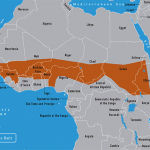
By Elisabeth Gawthrop, Climate and Society ’13 For many of us, dust is just an annoyance. It’s the coating that accumulates on our picture frames, and, for some, it may trigger unwelcome allergies. Dust is increasingly garnering interest, however, in the scientific community, including the role it plays in the climate system. And for many in… read more
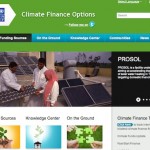
“For me finance is no longer associated with wearing suits and reading the Wall Street Journal.” I am glad my classmate Ricarda Dahlheimer cleared that up for all of us in her post earlier this summer and made the task of describing my summer internship a great deal easier. Since I started my internship at the United Nations Development Program (UNDP) in early June, I have enjoyed the comfort of light summer dresses and not once read the Wall Street Journal. And yet, I work on climate finance.

The Agricultural Model Intercomparison and Improvement Project (AgMIP) is a major international effort linking climate science, agriculture and economics to improve model predictions of global agricultural production and world food security under the conditions of a changing climate.
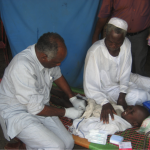
In Eastern Sudan, where cracking soils and Acacia-Balanites woodlands dot the landscape, there roams a ferocious little female bug whose bite packs a serious punch. The female sand fly, of the genus Phlebotomus, has a terrifying and death delivering parasitic unicellular organism residing within it, Leishmania donovani, responsible for the disease, Visceral Leishmaniasis (VL), affecting people worldwide.
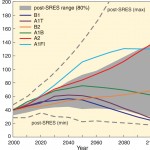
Despite considerable advances in climate modeling, projections can never be certain, but they get the job done anyway.
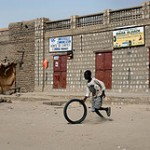
Meningitis is an infectious disease caused by bacteria Neisseria Meningitides and is transmitted between humans through respiratory droplets or throat secretions. Existing research has confirmed the tie between environmental factors and the transmission risk of meningitis. Such factors include but are not limited to humidity, temperature and wind speed. With infectious diseases being one of the three most challenging climate sensitive health issues, the central question that the environmental science and the health communities both struggle to answer is: how to integrate climate information into public health decision making process?
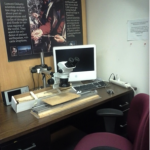
Tucked away in the corner of the Lamont campus, a lone building is marked only with the words “Tree Ring Lab” in fading white paint on a cross-section of a tree. Although the lab holds an idyllic charm with dendro-chronologists walking barefoot and sipping foreign teas, this is the home to some of the most ground-breaking tree ring research.

Climate change affects the agricultural sector directly, by altering growing seasons through precipitation and temperature changes and increasing the number of extreme events that can destroy whole crops. In an urban environment, however, the effects can be compounded by reliance on the transportation sector to ship in most food items, population density creating high demand in a small region and economic disparity.
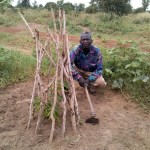
One significant effect of climate change is increased climate variability. High temperatures are going to become higher and extremes will be more frequent, dry spells are going to last longer, storms are going to be more intense. Many parts in Africa are already feeling this effect: long dry spells and food shortages are followed by intense storms and flash floods. In Uganda, the Partners for Resilience (PfR) are working to help marginalized communities adapt to this increased variability by implementing early warning systems across timescales.













